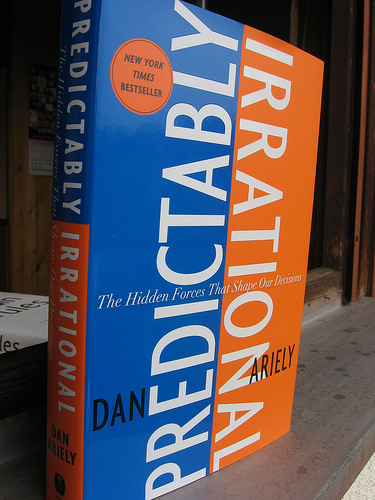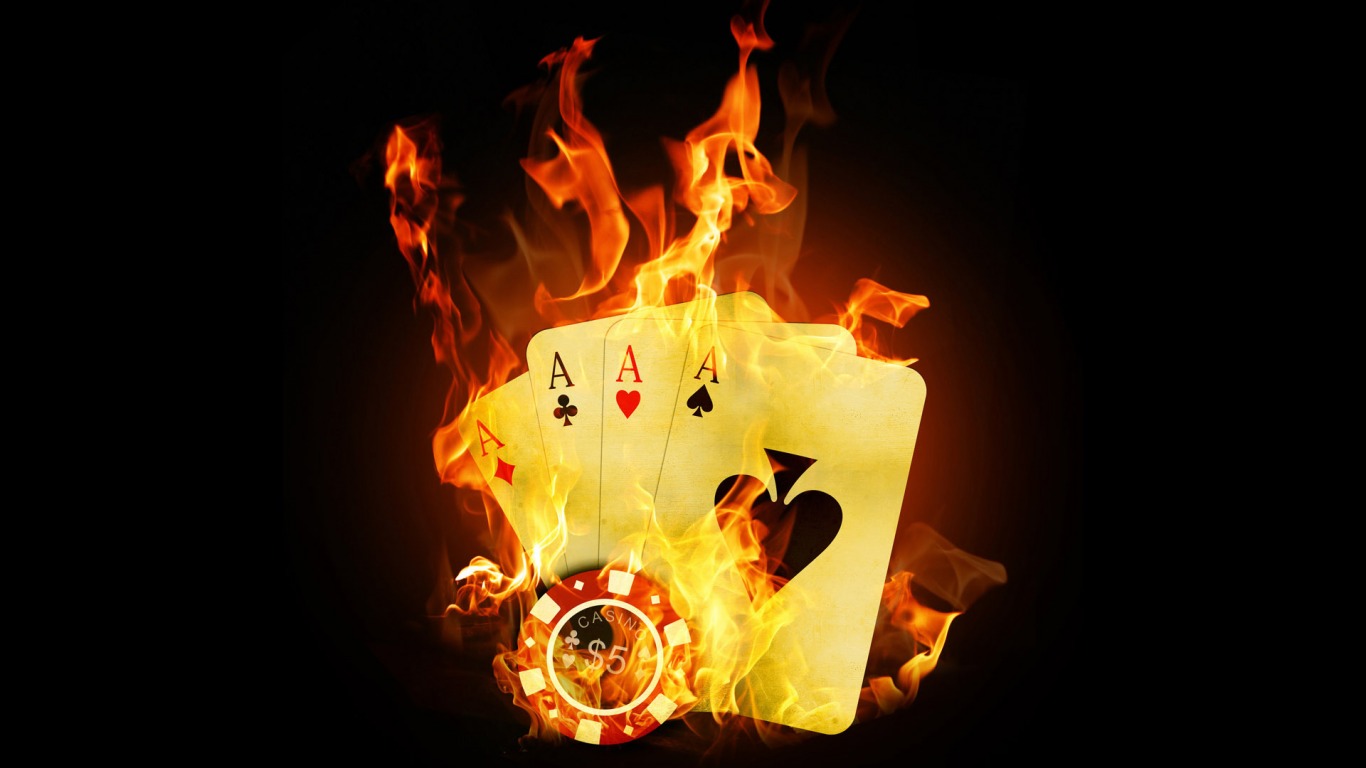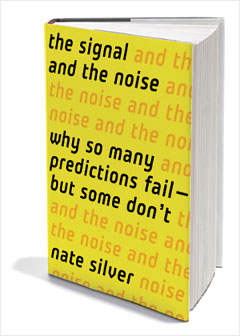
Book 2 of 10
"Predictably Irrational" by Dan Ariely
Since the Enlightenment and philosophers of that time (and even before, with Socrates, for example) we know that the human being is a being of reason, a rational (rationality is the ability to use logic and reason to ask actions have a coherent sense). Man (with a capital H, including men and women) has the pretension to say that is the most intelligent living being on this earth and in turn, more coherent and rational. By cons, even if the human being is capable of the most beautiful things, we also know that it is sometimes irrational. A "predictable" irrationality in the words of the author, Dan Ariely (examples follow to clarify this formulation).
On a poker table, man who sits must have hundreds of qualities and knowledge, but it must also be a rational being. The short summary of the book in question may make you (hopefully) reflect on your own rationality. Are you 100% of the time rational? On a poker table, always apply what you know? To be irrational not need to have used drugs or a bottle of Vodka, you'll see! And if your irrationality cost you big blinds from time to time?
The predictable irrationality is what?
What Predictable Irrationality? The predictable irrationality is a trap that even the most intelligent people fall. Thousands of examples could be given, but to give an example related to the Game: In some casinos, the game of roulette, the historic red and black is shown. As you probably know, many bets can be placed in the game of roulette, one which is to guess whether the next number will be red or black. So why do we display the historic "black-black-black-red"? To make you bet? This data is irrational. Your choice should (in theory) not be influenced by the history of "black and red". Although the last 10 shots were all red, there is no logical argument that can convince me that red is "due". By cons, many people will be swayed by this irrational information and try to bet on red. Is it to encourage behaviors such as: "I did not intend to play, but it's 10 shots it is red so I'll bet on black should fall more often in the next shot."
The same could be said for the momentum of a coin. If I just run 10 times my room and every time I did, "stack", is what I most likely that the 11th time is facing? Of course not, the coin has no memory.
The author gives several examples of interesting predictable irrationalities, including the following (this example was included in the book I mentioned last month by the author Daniel Kahneman):
We ask the question to a group of students and they are asked which of the following offers the most interested.
$ 75 for a one year subscription to their favorite magazine web version only.
Only $ 150 for a paper one year subscription to their favorite magazine version.
$ 150 for a combined paper and online one year subscription to their favorite magazine version.
The majority of students in this situation choose option number 3 because it is a good economy option 2.
Later, we ask the students to make the choice between:
$ 75 for a one year subscription to their favorite magazine web version only.
Only $ 150 for a paper one year subscription to their favorite magazine version.
In this offer, the same students choose option number 1, whereas it is less expensive than the second and they will settle for this option.
The conclusion is that people need alternatives to choose. In a vacuum, people do not know how much is a subscription to a magazine. They need to compare their choice.
With only 2 choices, one is less irrational. 3 with suggestions like these, it becomes more. One option is to sell another. One option awakens our irrationality.
It's like (another example from the book) a company that manufactured machines for bread there so many years. Machines for home, for Mr. and Mrs.-Tout-le-Monde. When the machine is out, she has had only limited success because the people had never seen such a machine, and therefore had no idea of the value of such a machine (is that $ 250 is a good price? Is it a deal? Does it work? options are sufficient? Hard to say when there is no comparison).
That is why the company has had quite an interesting idea to market a bulkier less powerful machine, and a little more expensive. The purpose of this marketing was not to sell the No. 2 machine, but to give a comparison tool to its customers. Now, when customers bought the number one machine, they knew it was good and cheap because they had seen a larger, less efficient and more expensive.
The same strategy is at all merchants. If you want to sell a TV X for example, you must not only introduce this TV; you must present a much worse that almost the same price and a much more expensive and a little better. So when people see the TV X, they know that this is the best value for them since a is less good and almost the same price and the other is too expensive for a few more options .
That said, now make links with the poker.
Analogies with poker
I ask you a question: would you 15 minutes to drive to another store to buy a shirt for $ 43 while you are currently in a store that sells $ 63? Probably yes. 15 minutes of work for $ 20 seems like a good deal. Now, if you're in a computer store and the model you like is $ 1,520, would you 15 minutes to drive to the store to buy another $ 1,500? To this question, one can anticipate the irrational responses. Here, the economy remains the same and the time invested is the same: 15 minutes for $ 20. Obviously, we can always argue with the seller to get the discount, but say that prices are inflexible.
Now, think about your bet sizing when you play poker. All players know that Sizings bet are important. You are on the river with the nuts and you wonder how is willing to pay according to your opponent that you have read its range. $ 65? Can caller 71? $ 85? If players have small limits an advantage over players Highstakes it may be here. We want to get the lowest possible dollar since it is a lot of money for us. $ 20 is almost one half stack NL50 as $ 20, it's only 2 big blind to NL1000. It is possible that the two players do not treat this $ 20 in the same manner and with the same consideration. When you play pots $ 1500, it becomes easier to say "Oh, it's only $ 10 difference, it changes nothing." I value bet $ 740 or $ 750, it changes nothing. I am not saying that all players Highstakes make these mistakes, far from it. I do not even know if many players make these mistakes. Maybe all Highstakes players are aware of this phenomenon. I am simply pointing out that it can be easy to fall into this trap. So the next time you betterez value (or be able to impress), do not overlook a single dollar. $ 10, not a single big blind is also a trio at McDonalds.
When we spoke earlier casinos which mark the frequency of "red-black" roulette ... It does not remind you of the irrational sentences heard by some poker players? Like "I'm gonna caller a 3bet with my little pair even if I do not have the odds for setminer, I had" or "I do not have the odds to run my flush draw, but it's 4 times now that I do not hit, I had to. " Do not fall into these traps irrational.
Other irrationality: the author speaks syndrome traveler. What he talking about? You are traveling in Germany and you speak very little German. It's been one month that you are there and you start to get bored of your culture, your friends, your language and suddenly you meet someone who speaks French and from Quebec too! Suddenly, you are his brother and you want to automatically become his friend. You spend a few days with him and it's very cool. Later, you return to Quebec and you'll have a beer with him in Montreal. Suddenly, you realize that you really have no point in common with him. Why?
Because when you were in Germany, you were a stranger and compared to others, your new friend will much like Quebec and was very cool. By cons, once returned to Montreal in the middle of all full of Quebecers who have the same culture as you, you realize that your friend met in Germany is very far from being the person with whom you have the greatest affinity . I myself have fallen into this kind of trap.
What is the connection with poker? Playing poker with friends. You have some knowledge about the game and your friends are all amateurs. You win 6-7 buy-ins in a short time and you are the shark of the evening! Without thinking too much, you overestimate your game and go play on the Internet at higher limits by telling you that you are a god of poker. Appraisal of your session? Are you all completely "owne" and you lost a lot of money.
Conclusion? It is very important to be aware of their level of play and the level of play of his opponents to be able to properly judge. If you runnez bad or if you runnez Good, it may be due to runs of cards, but it can also be due to the fact that the players at your table are either very good or very bad either.
Further, the author explains that his 30 years, he decided to buy a car. Since this is a big expense, he wanted to ensure he would buy the right car. That is why he consulted a website that would help him make his choice. The site had a questionnaire on what we were looking for the type of car by asking several questions like "what is your budget." At the end of the questionnaire, the author is offering one choice that would fit his needs: a Ford Taurus. His first reaction was: NO WAY! Nothing less sexy than a Ford Taurus. That's when he redid the questionnaire by modifying some of his answers.
The conclusion of this story is that, unconsciously, he used this tool before making his purchase, was not to be suggesting the best buy for him, but to have it confirmed that was the Mazda Miata best choice for him.
The same example can be given to poker and I must admit that I have often been in this situation. You are on the river, for example with an average hand and your opponent complete its 3 barrels leveraging all in! Objectively, you know you're beat. The attack your opponent is weak, his river bet is weak, you know calling station and probably will not dare to bluff you, but you're curious and you are looking for excuses to caller.
"Maybe he has missed his draw?" you say. Or are you looking hands worse than your opponent could gain better. You end up convincing you caller and your opponent shows you the nuts. Here, your HUD tells you to folder, say in your notes folder, your logic and your analysis tell you to folder. But you want reasons for caller, irrationally and you callez. That you've ever?
Analogies with poker could be endless as the author gives hundreds of examples of predictable irrationality. This is probably the book that I had the most fun to read for a long time!
In conclusion, the author tells us that almost scientifically, a person who earns $ 65,000 per year in a business where everyone earns about $ 50,000 per year will be happier than a person earning $ 75,000 per year in a business where everyone wins $ 85,000 and more. Everything is a matter of relativity. The same can be true with the poker. Our level of happiness (or the limit at which you play poker successfully) is often on our environment. If you are a player earning $ 150,000 per year NL400 (which is very respectable for a poker player), you will probably be unhappy if your best friend is Jungleman. But if you're with people who make less hard work, your happiness will probably be greater. Happiness or unhappiness exists only in terms of comparison.
This irrationality strategy can also be used to your advantage when you're dating girls. The author suggests that about bringing with you a friend who looks a bit but is less beautiful. In a vacuum like that, your target might not know too if you are interesting or not, but along with your "wingman", similar to you, but a little less interesting, you might have more chances to seduce the lady !
In short, an interesting curiosity for all or for people who are interested in human behavior hyper reading.




